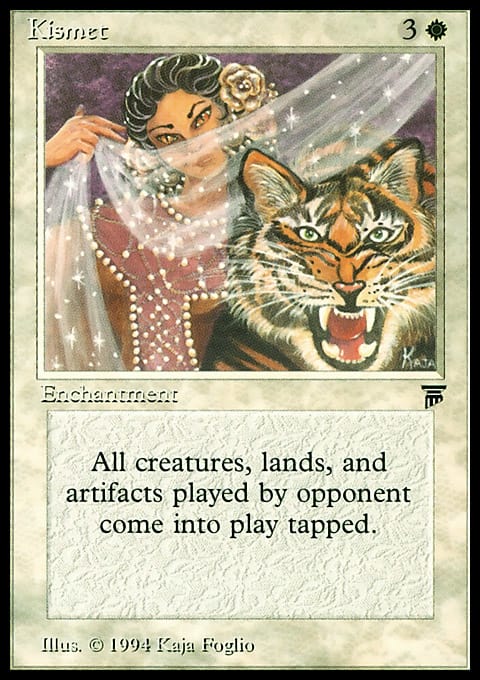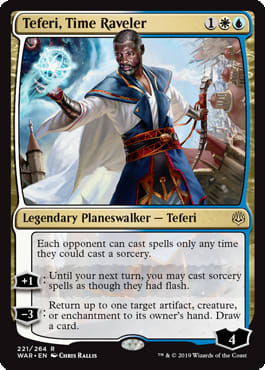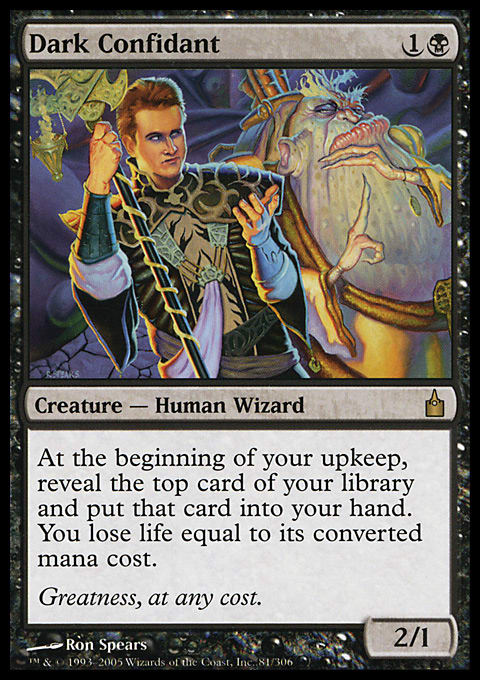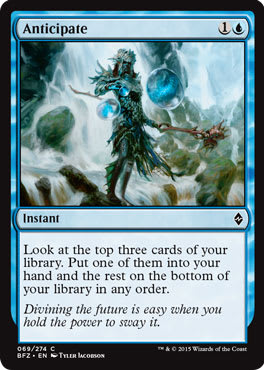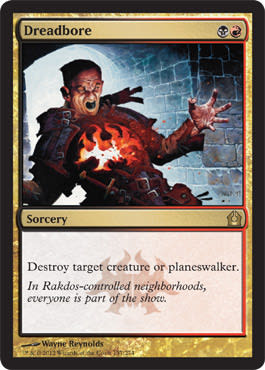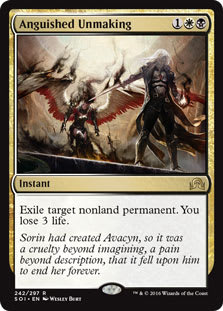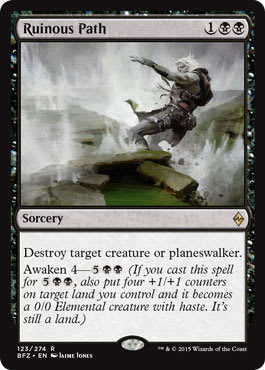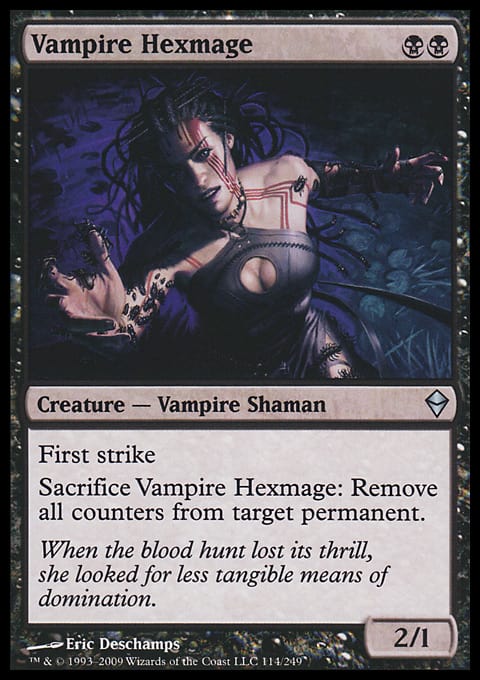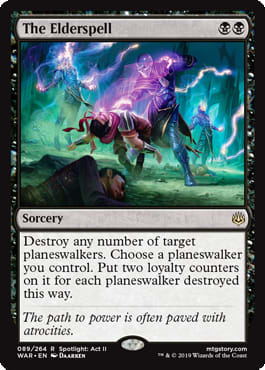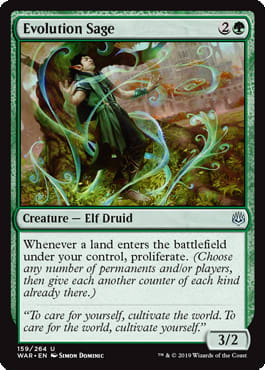While I've done a ton of new Magic theory this year, I haven't spent that much time applying it to "real world" Magic places or problems.
Luckily, an old pal came along to help me do just that!
Today I'm going to read over a recent piece by my CoolStuff colleague (and former subordinate) Jim Davis. Jim loves constructive criticism and new perspectives. Because he's a pro, top to bottom. That makes him an excellent choice for this exercise.
As happy as I am with the frameworks I've composed this year, they're nothing if they're not implemented in practical ways. In fact, that's the most important part of the frameworks to begin with!
Jim is the exact kind of player mind to trust with deep, honest Magic thinking. Read his work, watch his videos, support his stream. He is an absolute workman to the game of Magic.
If you have the ability and time, I suggest you check out both Jim's article and my theory pieces, both hyperlinked above. I'm going to discuss the piece as best I can without making extra references to my theory articles; however, familiarization will only help.
On the Issue of Planeswalker Fatigue
The Mistakes:
There's a big helping of Favoritism Intuition here.
Taking away playing cards at instant speed or only being able to draw cards during your draw step all the time would suck (though it'd still be Magic, I'd argue), but that's not what these cards say. They don't have an emblem that redefines game text retrocausaly. Before they enter the battlefield, you can do what you want. After they leave the battlefield, you can do what you want. So we need to redefine the parameters here a bit (and that's not even addressing that this is all in a Standard context. Jim has to play with Standard cards to pay bills; a good solution to these cards for most of us is to just go play with other cards). Besides, the text on these cards create all kinds of interesting problem-solving questions. For instance, here are some thoughts that weren't in my head before a few minutes ago:
- Narset's passive can be circumvented by triggers like Dark Confidant's because of the distinction between drawing a card and "putting it into your hand." The same applies for cards like Anticipate and so forth.
- Teferi's passive makes me wonder how many good sorceries are hanging out in bulk binders because people are really uncomfortable playing them.
Bonus Discussion! Are instants or sorceries more forgiving to player mistakes? Why or why not?
In other words, I don't think there are any inherent issues with these cards as they're presented. It just seems like players get overexposed because of the lifespan of Standard. I mean, if these cards sucked, I'd be disappointed. They look cool. No, really. Step back. Imagine if the face of the most played format in Magic was Brindle Boar.
Most of us don't want that, and those that do are hopefully getting the help they need.
On the bright side, if any player should be overexposed to things in Magic, it's Jim. He has played and breathed the game for years and years and years. In my estimation, Jim doesn't like how many times he's been on the draw and "gotten got" by cards that don't let him do the things he likes to do. Which again, is fine and understandable. In fact, Jim's article is extremely reflective of an idea I talked about recently: how players themselves shape Magic design sometimes.
It could be worse, Jim. The cool chase cards you're sick of could be not Blue and White.
Gasp in back row.
There's a section in there about Oko, Thief of Crowns being good too. These three are linked by their mana costs and card type, which is a Characterization Intuition. The only real anecdotal thing I've heard so far about Oko's capabilities involve my veteran Modern Burn player friend thinking he's miserable to play against. It seems like if there's anyone that can be sacrificed to the risks of new cards it's the players who have been on Lava Spike since 2008.
So anyway, only two theory potholes from Jim in the first bit. Not bad! And maybe more importantly, they are still well-presented mistakes. Because Jim's just that good.
Either way, he concludes the section and moves on, closing with this:
Planeswalkers Are Too Hard To Interact With
The Mistakes:
None whatsoever. I think his reasoning here is excellent, though I do have one caveat:
There is a very strong tendency toward this already being an increasingly solved problem, no?
Jim mentions the almost profoundly eloquent Vampire Hexmage.
When Hexmage was first printed in Zendikar, planeswalkers were nearly untouchable directly. Cards didn't reference the planeswalker card type except in special circumstances because Wizards of the Coast wanted them to feel special and surprising to players opening packs. I have no idea why that was a thing since the Internet exists and we all know all the cards all the time anyway, but hey. Things are better now either way.
"Planeswalker" appears all over the place in text boxes now. Look at this thing!
Subtlety not included.
There's a quick comment from Jim in this section about how planeswalkers expose Magic design, but since planeswalkers came after nearly all of Magic's game architecture to date, I'll just pretend that's not even there and we can keep moving. (It reeks a touch of Fatalism Intuition to me, but I feel Jim earned a perfect score here even if I have to round up.)
Get More Creative With Regards To Interacting With Planeswalkers
This part of the article begins with a list of a huge number of ways in which creatures can interact with a given Magic game (entering or leaving the battlefield effects, getting bounced, etc). Jim correctly points out that there are far fewer ways to interact with planeswalkers.
The Mistakes:
This serves the point that we need more cards that interact with planeswalkers, which again, is correct; however, this also feels like more characterization intuition. Planeswalkers and creatures are different, and there's no reason to couple them here to make the point. In Magic, there are overwhelmingly more creatures, and a majority of the game's history has taken place with the notion that creatures are the primary way to interact and win (or lose). So showing all the ways creatures can be interacted with doesn't serve much more purpose than a list of all the ways we can interact with artifacts or enchantments or whatever else. Planeswalker interaction is a unique, emergent problem for Magic; it won't be best improved with solutions that characterize other problems.
Here are a few brainstormed cards Jim pitched to increase planeswalker interaction, as well as my thoughts on them:
Null Rod Bear
Creature - Human
Planeswalker abilities can't be activated.
2/2
While Jim was far from endorsing this as some kind of brilliant final catch all, I think it actually falls even shorter than that. There are many circumstances against planeswalkers where I bet this card is worse than Oreskos Swiftclaw. Or like, Frost Walker. I also laughed audibly when I saw that the "Bear" was Human.
Annoying Goblin
Creature - Human*
Haste
When Annoying Goblin enters the battlefield, target player can't activate planeswalker abilities until your next turn.
2/2
*Jim said this was a Goblin, but I made it a Human to amuse myself. See above card.
This card is pretty cool. It still has the issue that outside of a set like War of the Spark, it doesn't really fit in. And that points to what we'll call "The Damned Planeswalker Problem." Stay until the end of the article and I'll tell you what that is.
Next card!
Spark Sucker
Creature - Vampire
When Spark Sucker enters the battlefield or deals combat damage to a player, you may remove up to two loyalty counters from target planeswalker. If you do, you lose that much life.
2/1
This is another cool design, but it still seems sideboardy. And then, is it better than The Elderspell (or hypothetical similar future designs)? I'm not sure we're on the right track. Or maybe we are, but we're not on all the right tracks.
When I talk about "The Damned Planeswalker Problem" in a second, you'll see how good these ideas actually are in the grand scheme of things.
But first...
Brain Drainer
Creature - Vampire
Menace
At the beginning of your upkeep each player loses 1 life. Then, remove one loyalty counter from each planeswalker on the battlefield.
2/2
I did a minor re-template on this one. Ignore.
This card design is the bee's knees. It would be even cooler if it could mess with other counters so that it doesn't even have... "The Damned Planeswalker Problem." I don't know how much screwing around with someone's Aether Vial this way will help you win anything, but more uses is always better than less. I think.
Oh no. He went and dragged Emma Handy into this.
[No Card Name]
Creature
Whenever an opponent activates a loyalty ability of a planeswalker, copy it. You may choose new targets for the copy.
2/2
Cool idea. Put it in a Commander product yesterday. But we all know that in tournament Magic, this thing would eat dirt. Disfigure, my go? (Hypothetical Magic is the best format.)
There are several more designs, all of them worth looking at and reading about from Jim. But at this point, I think it's time to just fast forward to...
The Damned Planeswalker Problem
The more interaction that is printed for planeswalkers directly, the more Magic necessarily becomes about planeswalkers.
The less interaction that is printed for planeswalkers, the less Magic is about them, but it also means they're more difficult to integrate comfortably.
This is the intrinsic tension when you add a major new game element nearly two decades into a game's life.
That's the price.
That's not to say it's a bad thing, but at least until the problem works itself out, we're stuck in this damned if we do, damned if we don't disconnect. And just like Jim said in his conclusion, he believes planeswalkers are actively good for the game. I'm sure as hell with him all the way there.
I can't help but think it comes down to how much you intrinsically enjoy whatever Magic dynamic is riding the high tide in any given period and how long it takes you to get bored of it. And for that reason it's really hard for me to look at the things Jim describes as pertinent Magic issues. To me, it just looks like more Magic evolution.
Besides, dice are fun to mess around with. I like that there's a more complex problem for my brain to work on when my opponent casts Oko on turn two than when they cast Goblin Guide on turn one.
The problem isn't planeswalkers. The problem is us.
Which one of you wants to write the future classic: "Who's the Tick Up?"
















